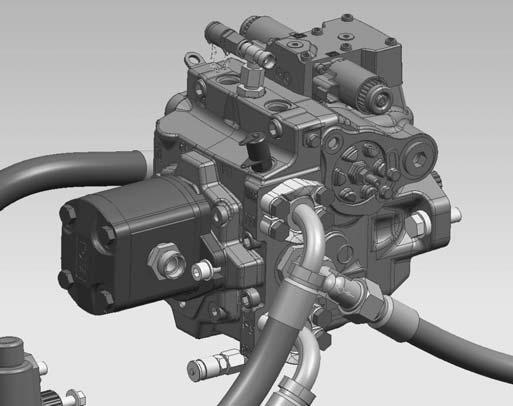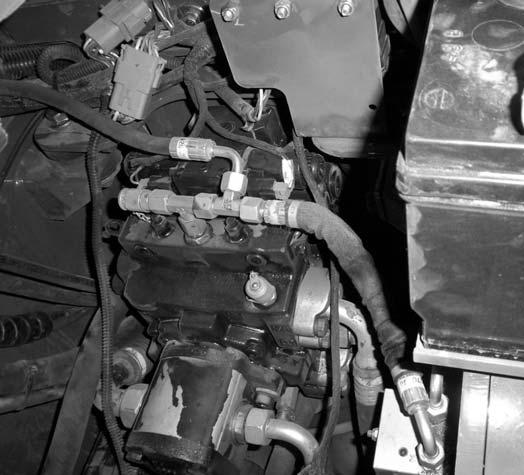
1 minute read
Hydraulics — Drive System Pressure Tests
Charge Pump Pressure Test
This test determines the condition of the charge pump.
STEP 1
Start the machine and allow it to warm to operating temperature (120° F / 49° C). Set the throttle to low idlle (1000 rpm).
STEP 2
Tilt the platform according to “Tilting the Platform” on page 61.
IMPORTANT: Start with a pressure gauge rated for a higher pressure than required, and move to lowerpressure gauges as needed. Gauges will be damaged if the pressure exceeds the capacity of the gauge.
Connect a pressure gauge rated for 414 bar (6000 psi) to test fitting (F). Start the machine. With the engine at low idle, shift the drive into forward and check the pressure on the gauge.
NOTE: It may be necessary to switch to a pressure gauge rated for 39 bar (1000 psi) to accurately measure charge pressure.
Alternate Charge Pump Pressure Test Procedure
STEP 2
Charge pump pressure can be read indirectly from either port (A) or port (B), depending upon which port exhibits the lower pressure as follows:
IMPORTANT: Start with a pressure gauge rated for a higher pressure than required, and move to lowerpressure gauges as needed. Gauges will be damaged if the pressure exceeds the capacity of the gauge.
Connect pressure gauges rated for 414 bar (6000 psi) to the test fitting. Start the machine. With the engine at low idle, shift the drive into forward and check the pressures on the gauges. The gauge displaying the lower pressure is connected to the port that can be used for measuring charge pump pressure indirectly.
NOTE: It may be necessary to switch to a pressure gauge rated for 34.5 bar (500 psi) to accurately measure charge pressure.
IMPORTANT: DO NOT shift from forward into reverse with the 39 bar (1000 psi) gauge installed or damage to the gauge will result.
STEP 3
Pressure should be no lower than 32 ± 1.5 bar (464 ± 22 psi).
Primary Charge Pump Pressure Test Procedure
STEP 2
Charge pump pressure can be read directly from port (F) as follows:
NOTE: Higher engine rpms and cooler hydraulic oil pressures will result in higher charge pressure readings. Pressures above 41 bar (600 psi) could indicate a malfunctioning relief valve.









